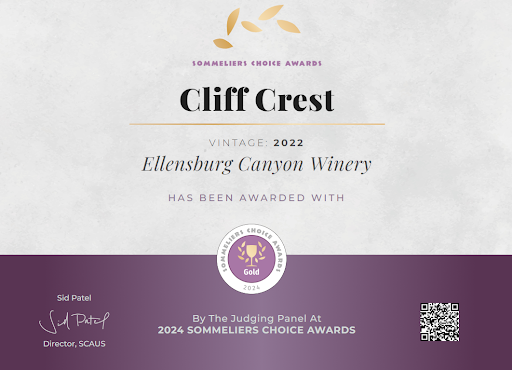America's Spirit Of Freedom And Innovation In The Wine Industry: Jason Reigel On The Rise Of US Wine Tourism

Stereotypically, wine is confined inside the frame of classy, elegant, and traditional. When thinking of this luscious beverage, the richness of a French Bordeaux red, the earthy, acidic notes of Chianti—Tuscany's ruby-colored gem—or the full-bodied, fruity Bobal from sunny Spain spring to mind. The US has been an astray region in the industry, awakening the palate with the image of amber-colored bourbon rather than an evening glass of red, white, or rosé.
Against this perception, the US wine landscape has been gaining traction, witnessing immense growth in recent years. California, the undisputed top wine-producing state, has been attracting millions of visitors—both international and from other parts of the country—offering scenic vineyards and flavorful grape varietals. From rewriting history with the $6,000 bottle of 1969 Chappellet Cabernet Sauvignon sold during the first Napa Valley Wine Auction on June 21st, 1981, to alluring 3.85 million travelers annually, this county's success story stands as a testament to the rising wave of oenophilia in America.
Traveling north of California, wine connoisseurs find Washington, a state proudly positioned as the nation's second-largest grape and wine-producing region. Since 1981, the region surged from just 19 wineries to more than 1,050, averaging 50 new wineries a year in the past decade. In Washington, at a favorable latitude of 46 degrees—between Burgundy and Bordeaux—diverse varietals of classic and experimental grapes ripen in Glacial and Volcanic soils, nurtured by abundant sunlight and the lack of rainfall. Recently, the Yakima Valley was named the number one wine region in the US.
In 1998, the Ellensburg Canyon Winery—the first commercial vineyard in Kittitas County—was founded. It harnesses the region's unique terroir—loamy soil with volcanic ash that adds complexity and frequent winds that promote flavonoid development in grapes' skins. In this diverse climate, the winery curated thousands of bottles of palatable, award-winning wine, combating the mediocrity stereotype surrounding American wines. For instance, the Ellensburg Canyon Winery's 2022 Cliff Crest Riesling—an acidic and fresh white—is the winner of gold and silver awards from the Washington State Wine Competition and Texas International Wine Competition.
What propels America's prominence in the wine realm is the country's inherent spirit of innovation, freedom, and diversity. With microclimates exclusive to the US, Washington, California, Virginia, and other wine-producing states can grow novel grape varietals, as well as elevating Cabernet Sauvignon, Merlot, Malbec, and other beloved classics with each region's unique flair.
The American zealous essence bleeds into winemaking techniques and procedures, shaping the curricula of the country's most renowned industry programs and inspiring wineries to think out of the box. Jason Reigel, the owner of the Ellensburg Canyon Winery since 2021, shares, "Every country has a unique voice in the winemaking world. The Georgians have the earthenware Kvevri, the Romans have the amphora, and others rely on traditional oak barrels, stainless steel tanks, or concrete eggs. In the US, we love playing around with methods. We use Xenia, the technique that lets the flavor from the grape seed shine, clean the wine by submerging it in the ocean and letting the gentle rocking of waves to the job, and fuse grape wine with other fruit."

Strong brand identities that resonate with audiences globally fuel the rising prominence of American wineries in the international sphere, exuding the spirit of unbridled creativity, freedom, and discovery. Catching that wave, Jason Reigel announced plans of rebranding—turning the Ellensburg Canyon Winery into Tartarian Wine. Adorned with the symbol of Griffin, a mythical creature with the head of a bird and the body of a lion, Tartarian Wine muses the conspiracy theory of the Tartarian Empire, or what some believe was an ancient prosperous continent now hidden from history.
The rebranding marks the beginning of Ellensburg Canyon Winery's plans to harness the growing interest surrounding the American winemaking landscape and expand globally. "In our region, five new wineries emerged in just three years, growing from two when I acquired the vineyard in 2021 to seven in 2024. Over the years, we welcomed visitors from Australia, New Zealand, Southeast Asia, and many other countries, each person filling our hearts with pride and happiness," Jason shares. "Ellensburg Canyon Winery is how it all started, and it's a beautiful place I will cherish forever. But it's time to fly out of the canyon and create a global brand that offers a beautiful kaleidoscope of wines."
Looking ahead, Jason envisions a future where American wines are recognized for their quirky, delectable nature, admired for their unique, complex flavor profiles, and loved for the intense memories and emotions they inspire. From November 12th to 14th, Tartarian Wine will be represented in Shanghai during the China Wine Show. In addition to three new wine types presented at the expo, the winery has also developed a canned wine drink —geared toward golf courses and pubs— launching soon.
As the US wine landscape continues to garner attention, the Ellensburg Canyon Winery stands as a testament to the power of innovation, passion, and quality, enriching the lives of customers with rich, luxurious wines at an affordable price. "We all know and love French Cabernet, Italian vino, and Spanish sangria," Jason supplies. "But in America, we do it well, too. The essence of novelty, liberty, and innovation is encapsulated in every single bottle of US wine, and it's impossible not to love it."
© Copyright IBTimes 2024. All rights reserved.





















